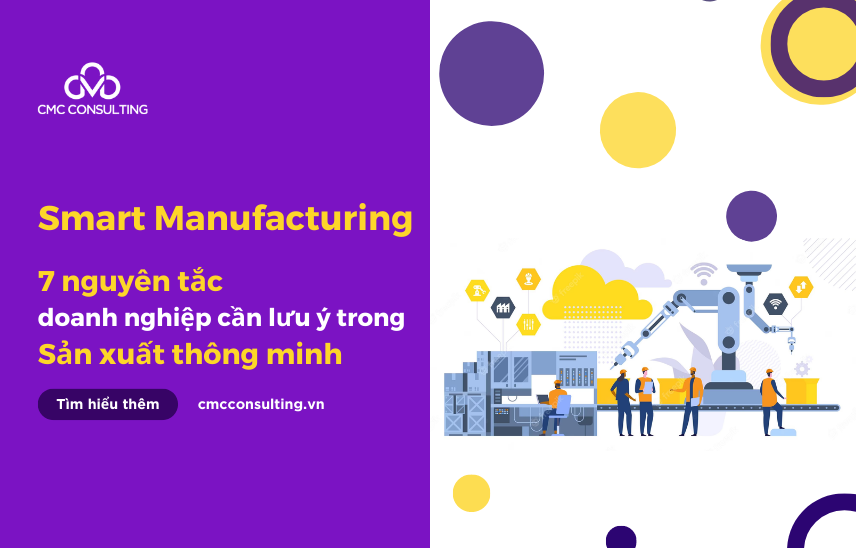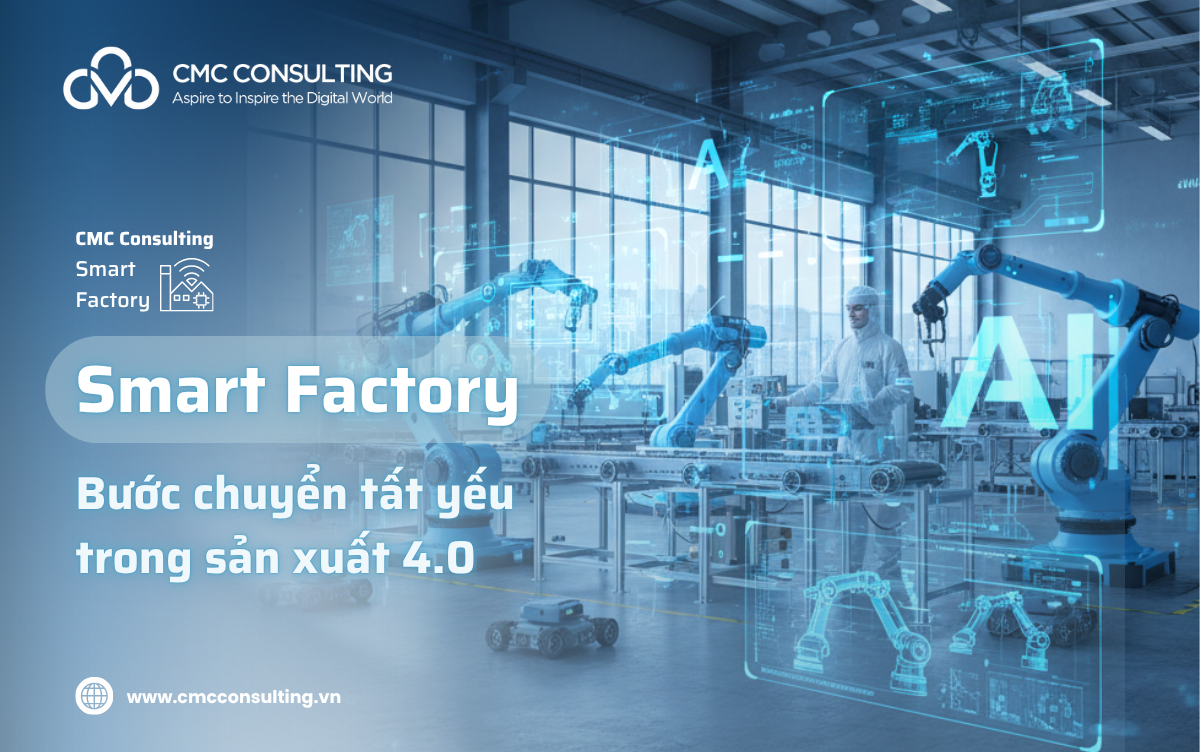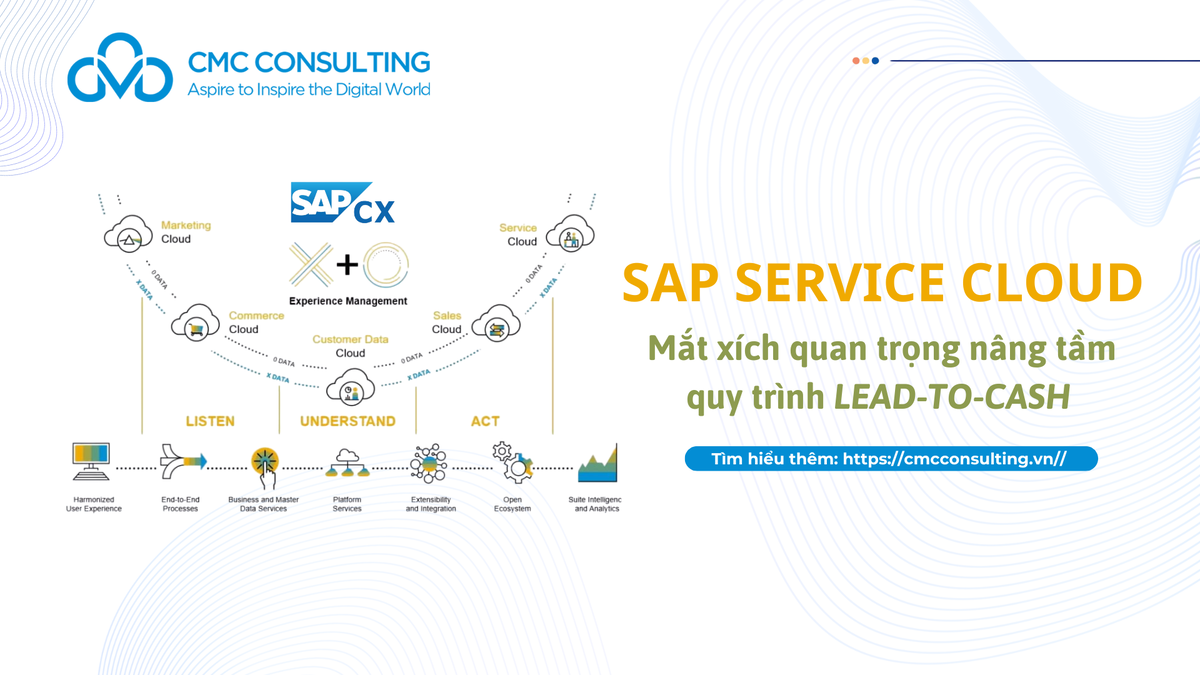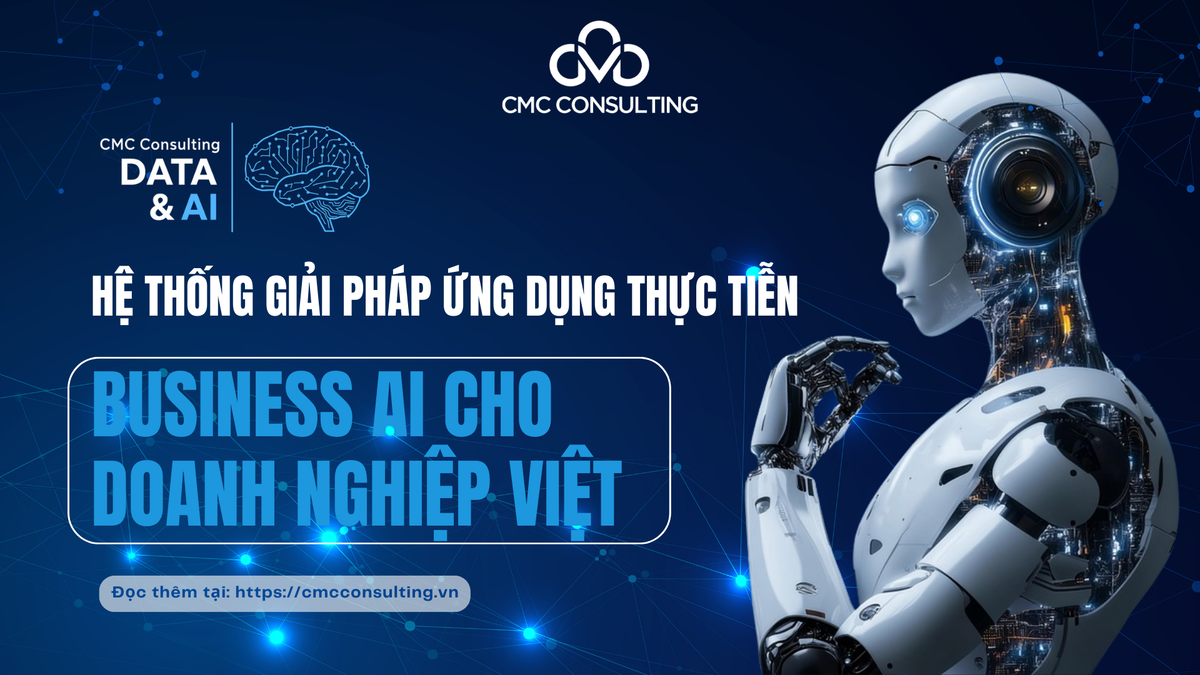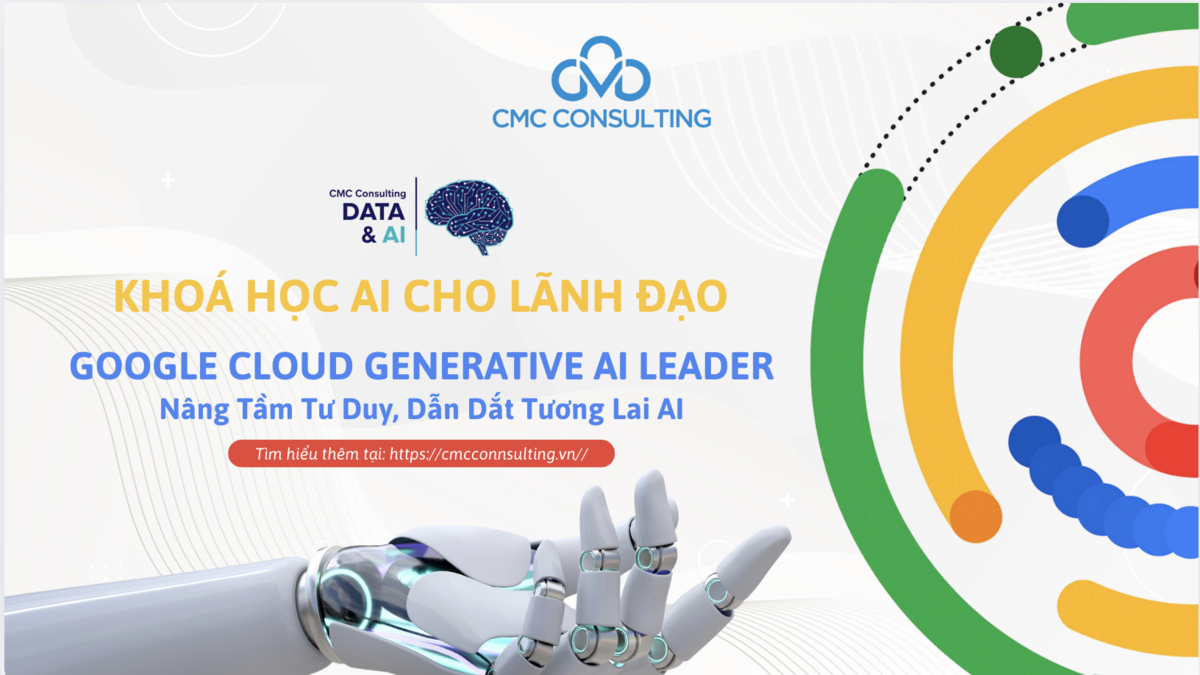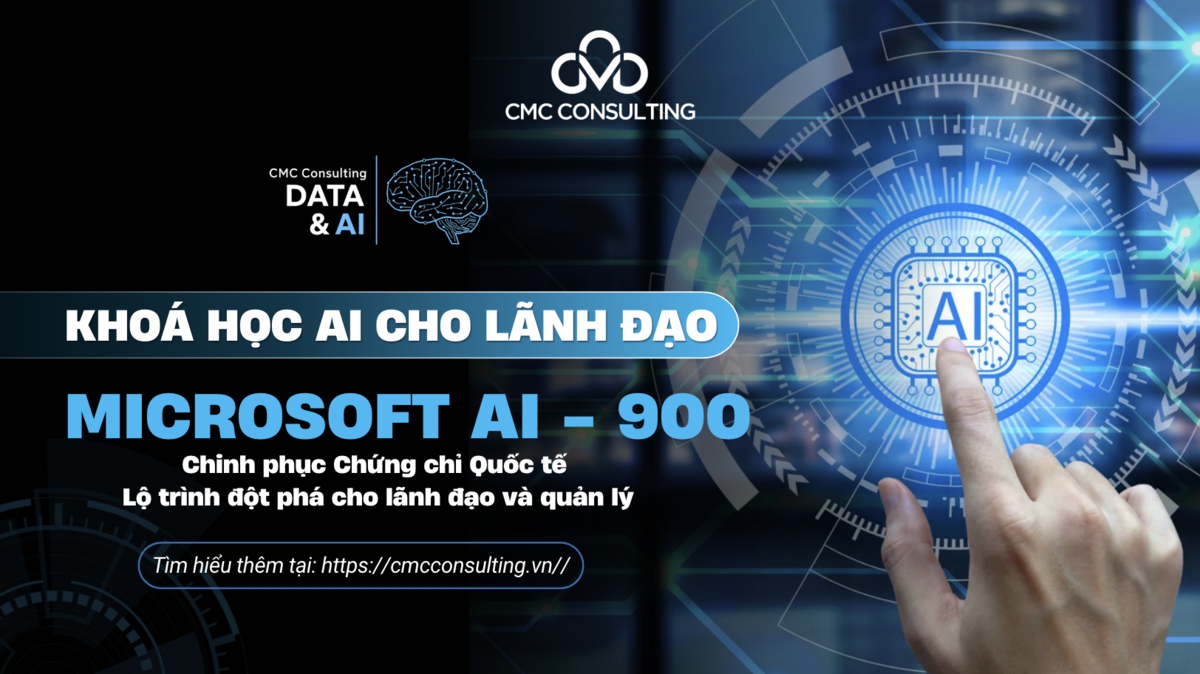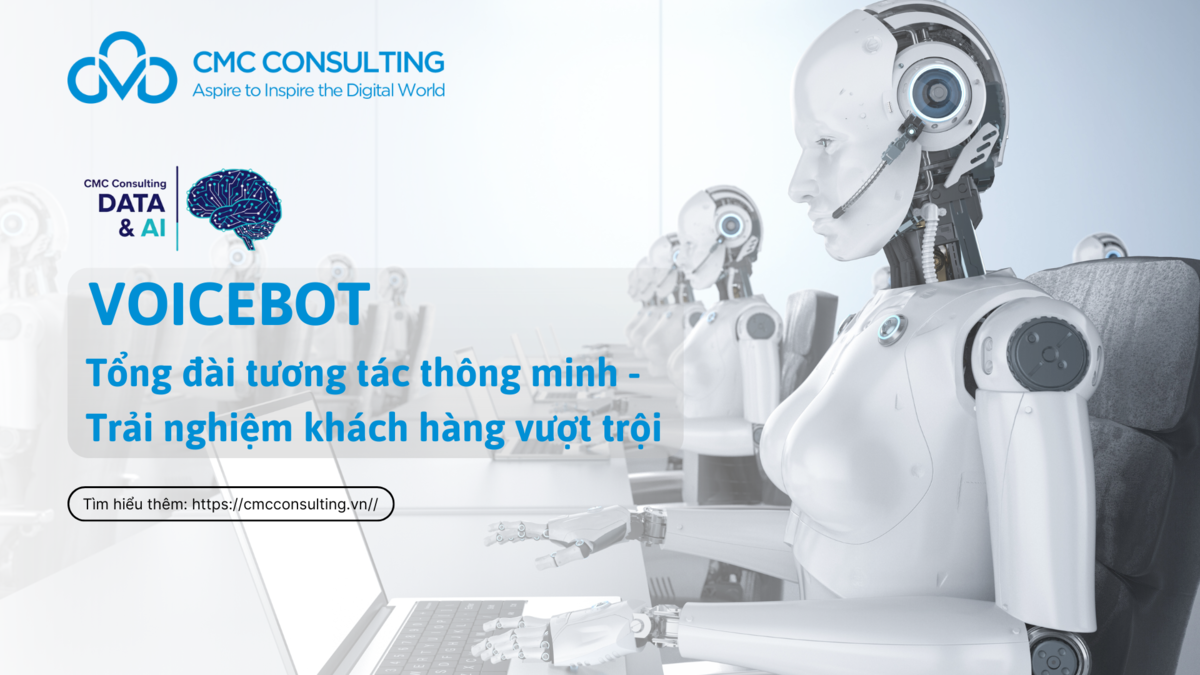The Fourth Industrial Revolution is creating many groundbreaking advancements, particularly in the manufacturing sector. The digital transformation, from deep integration to horizontal expansion, is happening across all facets of the industry. Modern manufacturing technologies are becoming indispensable links, helping businesses get closer to the goal of future manufacturing, also known as smart manufacturing.
1. What is Smart Manufacturing?
Smart manufacturing is the integration of machines, equipment, and production components through digital technology, applying artificial intelligence and Industrial Revolution 4.0 achievements like the Internet of Things (IoT) to solve issues in production plants, responding quickly and flexibly to new market demands. With IoT technology, machines automatically connect and share data with each other, minimizing human manual tasks. However, humans remain the central force, overseeing and managing production activities remotely.
Smart manufacturing is transformative, significantly impacting the efficiency of the manufacturing ecosystem through measurable improvements in areas such as speed, agility, quality, throughput, cost/profit, safety, asset reliability, and energy productivity. This, in turn, enhances profitability and accelerates investments in innovation.
In automated production, resources and processes are continuously integrated, monitored, and evaluated using sensors, information, process modeling, predictive analysis, and necessary workflows to automate routine actions and assign actions for non-standard situations.

Smart Manufacturing trends
In general, smart manufacturing is a comprehensive digital transformation strategy that spans technology, processes, and people. It simplifies production processes, accelerates them, and enhances efficiency by applying a wide range of modern scientific and technological advancements tailored to business operations. These include: Robotic Process Automation (RPA), the Internet of Things (IoT), Manufacturing Execution Systems (MES), Enterprise Resource Planning (ERP) software, and achievements from Industry 4.0 such as Cloud Computing, Additive Manufacturing (3D printing), Artificial Intelligence (AI), and Big Data. This approach can reduce time-to-market by 50%, lower development costs by 25%, and enable companies, especially electronics firms, to deliver near-perfect product quality.
The ultimate goal of smart manufacturing is to connect every stage of the production process. Factories that adopt smart manufacturing integrate unprecedented technical systems across multiple fields, levels, geographical boundaries, value chains, and lifecycle stages. Most importantly, integrating modern manufacturing techniques in a smart factory can only succeed if based on widely accepted international standards.
2. Differences between Smart Factories and Smart Manufacturing
While smart manufacturing and smart factories share the common goal of improvement by maximizing the use of technology, processes, and people, they are not the same.
Smart factories fully leverage the principles and end-to-end solutions provided by smart manufacturing to drive continuous improvement, productivity, and responsiveness to market changes, delivering the highest efficiency. Smart manufacturing also utilizes these advancements to unlock the true potential of each technology and strategy. As smart manufacturing transforms traditional factories into smart ones, it simultaneously drives the digital transformation of the manufacturing industry.
Applying smart manufacturing principles within a production facility can make a factory "smarter." A smart factory must optimize the use of smart manufacturing software/tools to improve existing traditional production processes. Since smart factory data is predominantly digital, it operates in a way that ensures necessary data is accessible in real-time. Data is interconnected and enables flexible interaction across management layers, from strategic to operational, supporting automation processes.
3. Benefits of Smart Manufacturing
With its technological and process advancements over traditional manufacturing, smart manufacturing brings the following benefits to the manufacturing industry and businesses:
- Significantly increased production productivity: Machines can operate 24/7 without the need for breaks, unlike human labor. Moreover, automated production lines work much faster than manual human operations, helping factories dramatically enhance productivity. This is considered the most notable benefit of adopting production automation in any factory.
- Reduced labor costs: Automation in production maximizes the involvement of machines while minimizing human participation in the production process. Therefore, businesses can reduce labor costs. Investing in automation is a smart and effective one-time investment. Moreover, automated production reduces the need for human involvement in dangerous tasks, ensuring workplace safety in factories.
- Improved product quality and reduced material costs: When automated equipment is applied, product specifications are pre-programmed, resulting in high precision and minimal error rates. Automation helps businesses significantly reduce human-related product defects and ensures uniform product quality. Low error rates mean factories can cut material costs and production-related expenses, such as defect repairs or replacement manufacturing.
- Enhanced employee skill levels: Automation allows businesses to reposition workers in more proactive roles and train them to adapt to technology more quickly. Instead of performing manual tasks, employees can be trained to control machines, specializing their skills and adapting to modern technology.
- Maximum flexibility in production: Smart manufacturing provides a high degree of flexibility in production processes. Changes to processes or adding/removing production stages, which typically require significant time and effort, can be simplified with automation, as the system can be reprogrammed quickly and efficiently.
- Increased competitiveness for businesses: By increasing productivity and reducing material and labor costs, factories can lower product prices while simultaneously improving product quality. This enhances the competitiveness of businesses in the market. Adopting automated production lines allows businesses to make breakthroughs in manufacturing, provided they implement it appropriately.
4. Seven Principles of Smart Manufacturing
According to CESMII (The Smart Manufacturing Institute of the U.S.), smart factories must adhere to seven principles to successfully implement modern manufacturing technologies:
- Safety: Smart manufacturing ensures wide-ranging and secure connectivity between devices, processes, people, and businesses in the ecosystem, safeguarding data integrity, intellectual property, and protection against cyberattacks while maintaining business continuity.
- Real-time operation: Resources and processes are digitally integrated, continuously monitored, and evaluated in near real-time. This provides deeper insights into a flat organizational structure and value chains with more autonomy and faster decentralized decision-making.
- Proactive and semi-automated: Beyond typical data dashboards, smart manufacturing creates proactive processes with predictive capabilities based on in-depth data. In routine, repetitive situations, smart manufacturing automatically triggers actions or decisions, while human intervention is needed for abnormal conditions.
- Openness and interaction: Smart manufacturing establishes an ecosystem of interconnected devices, systems, people, services, and partners through natural communication structures. Smart factories operate on cloud platforms, enabling extensive digital information exchange based on integration standards and APIs (Application Programming Interfaces).
- Scheduling and recoverability: Smart manufacturing adapts to changes in schedules and products with minimal intervention, easily reconfiguring and optimizing processes and material flows. It reacts quickly to demand changes, resists disruptions, and maintains business continuity through adaptability, modularity, and minimal redundancy.
- Scalability across functions and the value chain: This means as volume and complexity increase, costs and performance grow linearly, not exponentially. Systems and resources can be easily added, modified, or removed to meet changing needs.
- Sustainability and energy efficiency: Processes and systems optimize resource use, minimize negative environmental impacts, and maximize positive socio-economic outcomes.
5. Where to Begin the Smart Manufacturing Journey?
In reality, businesses at all levels can implement smart manufacturing by building a unified data system. By doing so, they can use an intelligent data collection system that links information from all processes within the factory, eliminating manual procedures and saving time and labor more effectively.
ERP systems and MES platforms are two key technologies capable of collecting and aggregating factory data, supporting detailed planning based on the resources and production needs of businesses. They help digitize the entire core management process from end to end, creating a consistent, synchronized data flow.

Enterprise Resource Planning Software for Manufacturing Companies – ERP
In the journey towards embracing modern manufacturing trends, applying technological solutions is no longer just a choice but an inevitable necessity for businesses striving for sustainable profits in the era of Industry 4.0. To navigate this transformation, businesses need a robust tool to comprehensively manage operations. SAP Business One, an optimal solution tailored for small and medium-sized enterprises, addresses the challenges of adopting modern manufacturing technologies.
With over a decade of experience in Digital Transformation for Manufacturing Enterprises, CMC Consulting leads the field in providing comprehensive ERP solutions, particularly through SAP Business One implementation. Backed by a team of highly knowledgeable experts with practical experience, CMC Consulting is confident in partnering with businesses to solve challenges and stay ahead of technological advancements.
Contact our Manufacturing Digital Transformation Experts for consultation here.




 Giang Hoàng
Giang Hoàng 12/07/2023
12/07/2023



